
Prof. Dr. Nguyen Van Khanh - Director of the Institute of Policy and Management, former Rector of the University of Social Sciences and Humanities
Professor, what has IPAM's development journey been like to reach its current position?
In 2002, the University of Social Sciences and Humanities was the first partner of the Rosa Luxemburg Foundation in Vietnam. At that time, the Sociology of Environment and Development Research Program chaired by Associate Professor, Dr. Vu Cao Dam was assigned to directly implement this cooperation activity. The first joint research project between the two sides was in the field of policy. German and Vietnamese experts initially aimed to carry out projects to help improve policy analysis capacity in the community, first of all in legislative and executive agencies of Vietnam. This is a field of science that is not new in the world but is still quite new in Vietnam. Practice also shows that policy makers in central and local agencies in Vietnam are mostly "amateurs" and have not received formal training in this field. This is a rather large gap in policy making that German and Vietnamese experts have seen.
The collaboration between German experts and experts from the University of Social Sciences and Humanities led to interesting and useful joint activities for both sides. The Rosa Luxemburg Institute facilitated opportunities for Vietnamese experts and leaders to study and research in Germany in the early years, gaining experience in policy analysis skills, especially from the left-wing parties of the Federal Republic of Germany. Policy dialogues, seminars, and workshops were organized around topics such as: the values of democratic socialism, the interaction between policy and culture, left-wing theories in modern social life, and very specific issues in science and education policy during the transition from a centrally planned economy to a market economy...
It can be said that the enthusiasm of German friends and the dedication of Vietnamese scientists have helped to form documents, reference books, textbooks and theoretical systems on policy science at the University of Social Sciences and Humanities. Training activities in the field of policy science and management have also been strongly developed by IPAM. IPAM has become the first model of a policy research institute in a university. Now, when mentioning the field of policy research and management, people remember IPAM, formerly CEPSTA, as a pioneering and prestigious research unit of the University of Social Sciences and Humanities and in Vietnam.
It's also worth mentioning that the collaboration between a Vietnamese university and an international foundation like Rosa Luxemburg has lasted 15 years – a sustainable and long-lasting partnership, even rare. Typically, such collaborations only last 3-5 years. But with IPAM, this collaboration, which began with a specific research direction in policy science, has expanded to include many new and in-depth research areas. We still have many new research ideas and joint projects in the present and future. Therefore, it can be said that the collaboration with Rosa Luxemburg is a special, long-lasting, traditional, and truly effective partnership, bringing significant value to both sides.
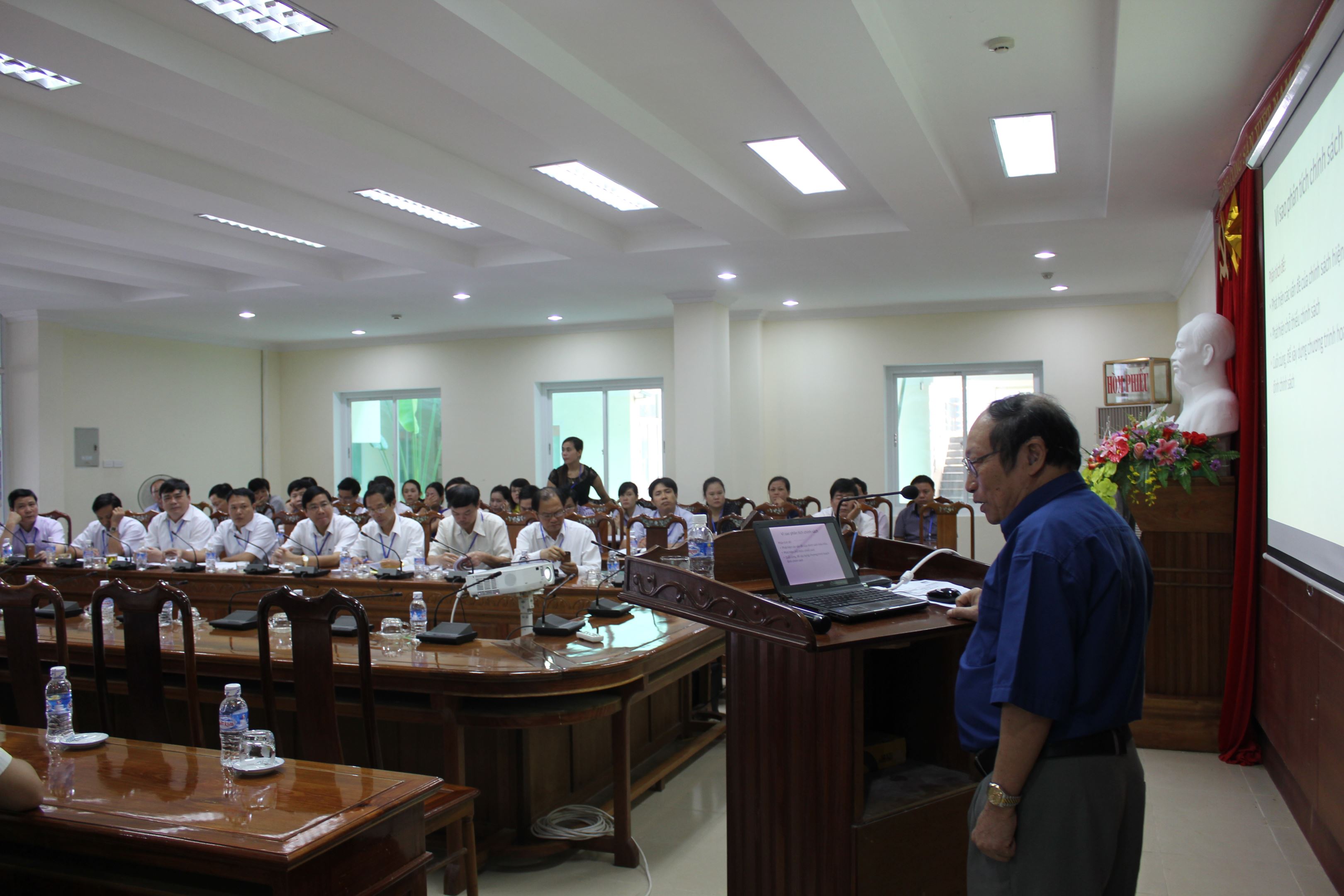
A training course on policy analysis skills organized by IPAM locally
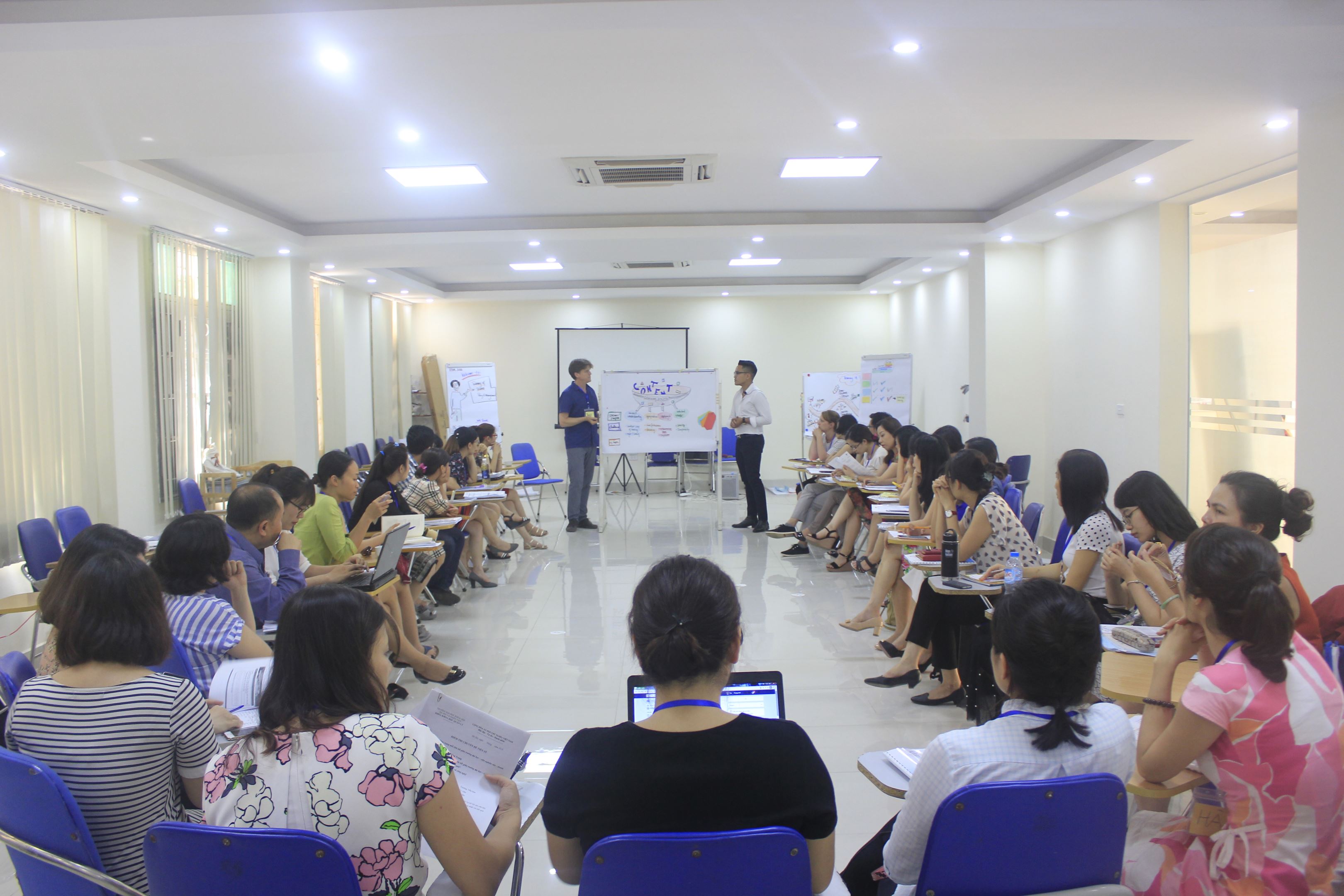
Image of a training course for lecturers organized by IPAM and Rosa Luxemburg with the participation of foreign experts at the University of Social Sciences and Humanities.
- What are the most notable achievements of IPAM in the fields of research and training? policy and management sir?
Despite its young age, IPAM has achieved a lot thanks to its 15-year cooperation with Rosa Luxemburg.
In the field of training, IPAM has organized more than 40 training courses for policy officials across the country, from the South to the North, not only in big cities such as Hanoi, Hai Phong, Ho Chi Minh City but also in southern provinces such as Bac Lieu, Can Tho... The content of these courses is diversified, from policy analysis skills, policy planning, policy evaluation, policy criticism, to planning skills, skills to analyze legal documents... These courses are designed to be linked to the reality of policy dialogue in localities and are warmly welcomed due to the practical effectiveness they bring to localities.
In particular, from 2009 to 2012, IPAM was ordered by the National Assembly Office to open policy training courses for experts from the National Assembly Office, the Government Office, the President's Office, and the Party Central Office. IPAM also undertook to provide documents on policy analysis skills for the 13th and 14th National Assembly deputies. This is one of IPAM's most outstanding achievements, directly contributing to the practice of policy making in Vietnam.
Together with the Faculty of Management Science of the University, IPAM contributes to developing the content of long-term training programs on Policy in the fields of Science and Technology Management at the Master's and Doctoral levels, and the Master's level in Public Policy. These are all pioneering training programs in Vietnam that IPAM has participated in developing and will be involved in implementing.
In terms of research, IPAM has made a significant contribution to the formation of a school of research on policy science at the University of Social Sciences and Humanities, based on a system of textbooks and research materials on policy science and specific policy areas such as science and education policy; science and technology and innovation policy; regional development policy; decision theory serving research and training...
Another valuable research direction of IPAM and Rosa Lucxembourg is on the development models of countries, the role of the State and the participation in the policy-making process of civil society organizations and businesses.Left Theoretical Alternatives Projecthas expanded opportunities for exchange and access to development theories through seminars and workshops with experts from African and Latin American countries such as Algeria, Cuba, Venezuela...
A further step forward is the collaborative academic activities between the two sides on key issues of science and education policy: development philosophy, the paradox of science and education in contemporary Vietnamese society... The education project has implemented research on the need for soft skills training for students... In 2017, within the framework of the cooperation between the two sides, a seminar on “Science and Education Policy…” with the participation of National Assembly Deputies, leaders of committees under the National Assembly, leaders of the Ministry of Science and Technology raised issues of discussion on philosophy and current issues of public interest in the field of science and education in Vietnam at the present stage.
Another notable achievement is that IPAM has formed a research group recognized by VNU as a strong research group at the VNU level. Most recently, IPAM proposed, and VNU agreed, to develop into a key research center at the VNU level – the first and only unit of the University to currently have such special recognition.
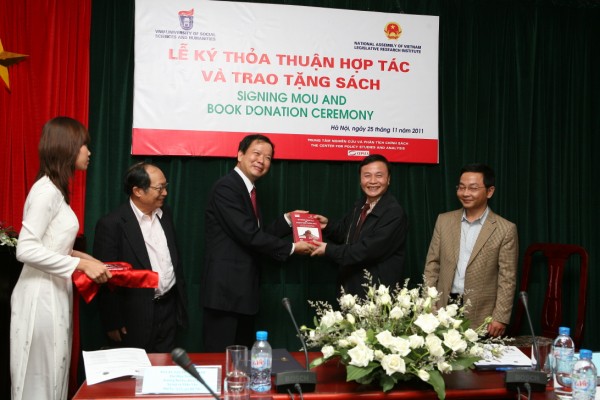
Signing ceremony for the cooperation agreement and book donation to the Institute of Legislative Studies of the National Assembly.

IPAM and the University of Social Sciences and Humanities donate books on policy analysis and planning to the National Assembly Library
Professor, how does IPAM position itself in comparison to other policy science research units in Vietnam?
The introduction of IPAM, with its combination of training and research subsystems, is a model.Think tankTypical in the field of policy and management. The Institute's slogan is "Ideas - Awareness - Innovation," aiming to move from new ideas in policy research to lead to changes in thinking and awareness in the field of policy, ultimately promoting positive changes in policy practice in Vietnam.
IPAM is a model of a research institute in a university, implementing research activities in parallel as a foundation and thereby promoting activities in the field of training, bringing the university lecture hall closer to policy-making agencies. IPAM focuses on policy science in relation to the field of political science and focuses more specifically on policy areas in science and education. This is different from some other policy research units of the Ministry of Science and Technology or some other agencies in the cultural sector.
In terms of organizational structure, IPAM operates autonomously with a streamlined and efficient staff. The Institute does not rely on state-funded projects but proactively seeks out external sources of research and projects. Despite having limited human resources, thanks to its extensive network of collaborations with policy experts from external organizations, the Institute has successfully implemented and completed many major scientific tasks. From a development model perspective, IPAM deserves to be considered an effective model that should be replicated in universities, especially in the context of university autonomy becoming a trend and an essential requirement in Vietnam.

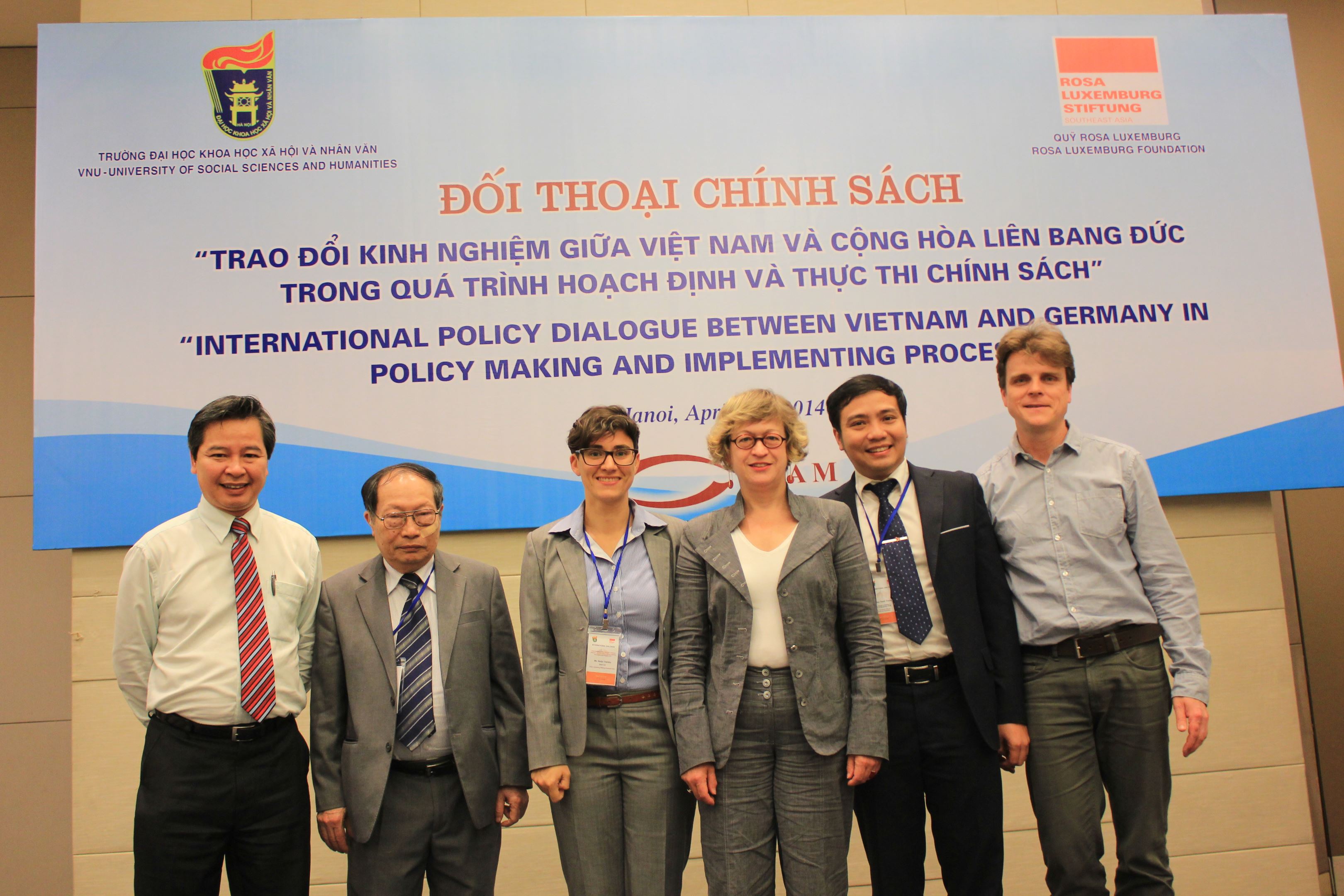

IPAM has organized many large international conferences, with the participation of domestic and foreign experts and managers, addressing many major issues in policy making and management in Vietnam.
- What development goals has the Institute's leadership set for IPAM in the future, Professor?
The very establishment of IPAM is an achievement, a positive outcome of the collaboration between the University of Social Sciences and Humanities and the Rosa Luxemburg Foundation. It embodies the culmination of scientific and humanistic values; an effort to develop the fields of policy science; and the expansion of an international academic exchange forum on policy and development, contributing to strengthening cooperation between Vietnam and the Federal Republic of Germany.
IPAM aims to continue its sustainable partnership with the Rosa Luxemburg Foundation, focusing on expanding understanding and policy analysis skills among diverse social groups in Vietnam. In the coming period, IPAM hopes, with the support of domestic and international partners, primarily Rosa Luxemburg, to further expand its knowledge and skills dissemination activities for policymakers in public agencies, members of socio-political organizations, and young lecturers.
We aspire to build IPAM into a leading research institution in Vietnam specializing in policy and management. IPAM will promote international publications and collaborations to bring the voice of Vietnamese scientists to global forums in the field of policy. In the long term, we expect IPAM to develop into a leading institute/center/school in policy science, with a status and prestige comparable to the Lee Kuan Yew School of Public Policy at the National University of Singapore...

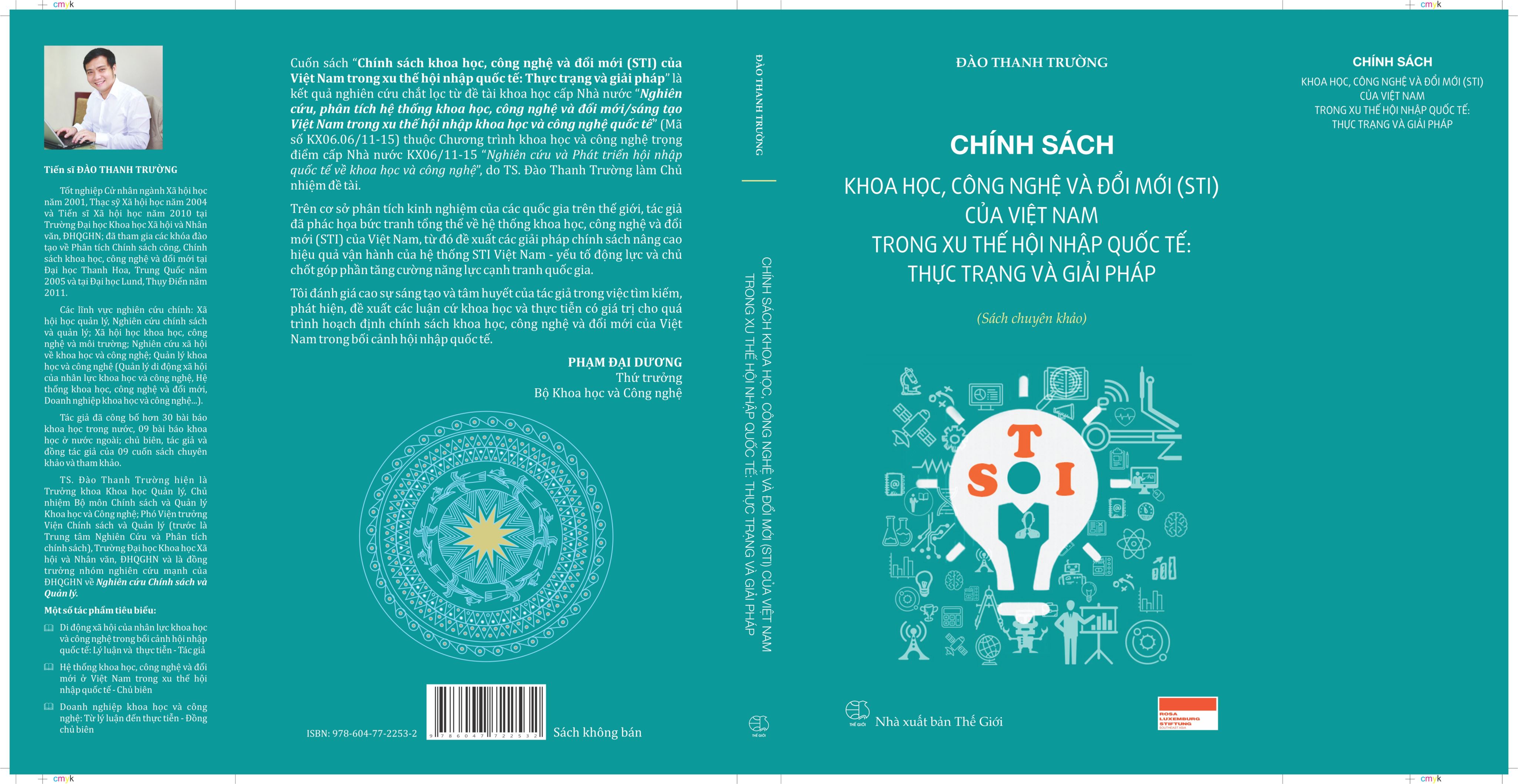
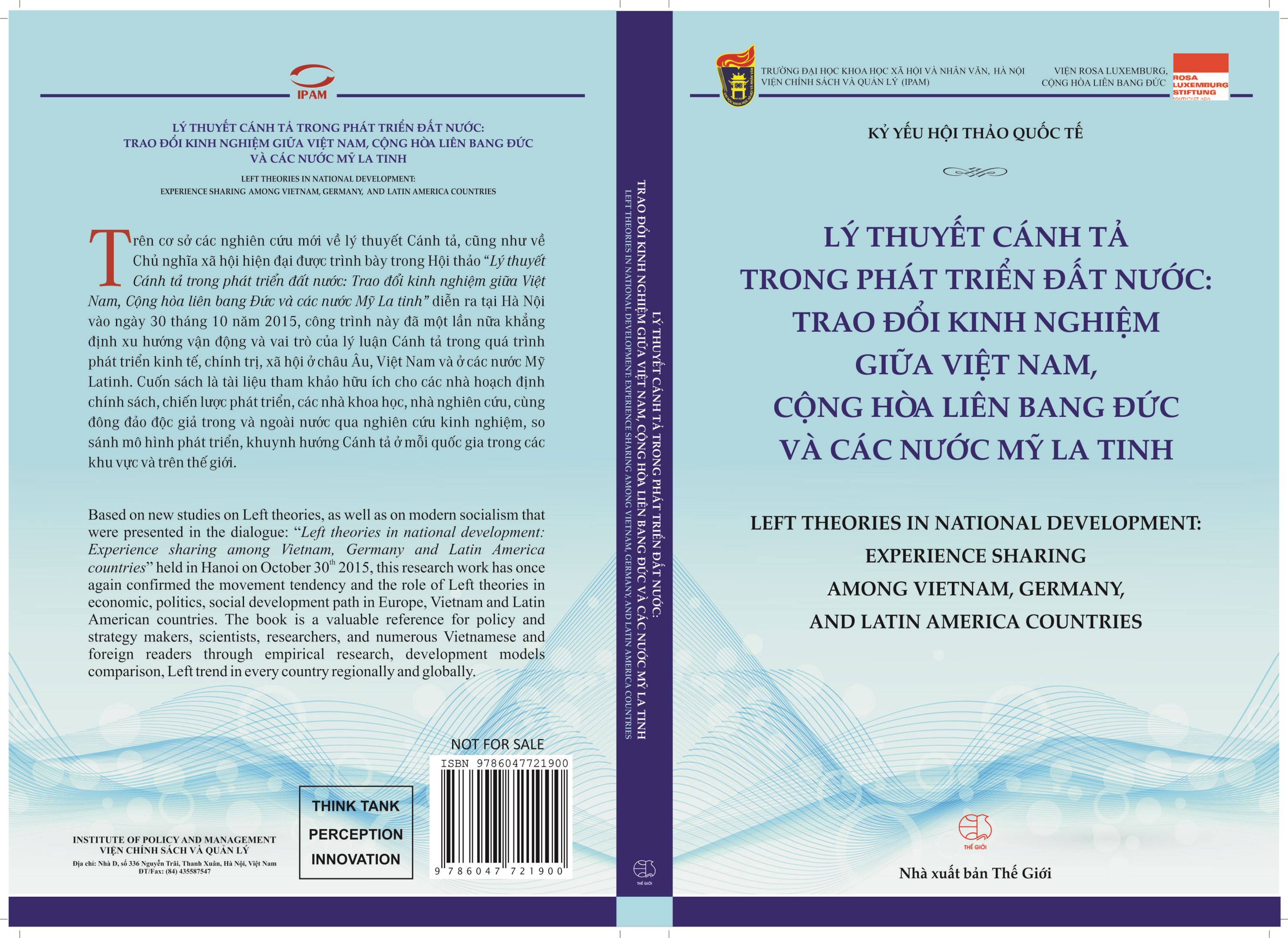
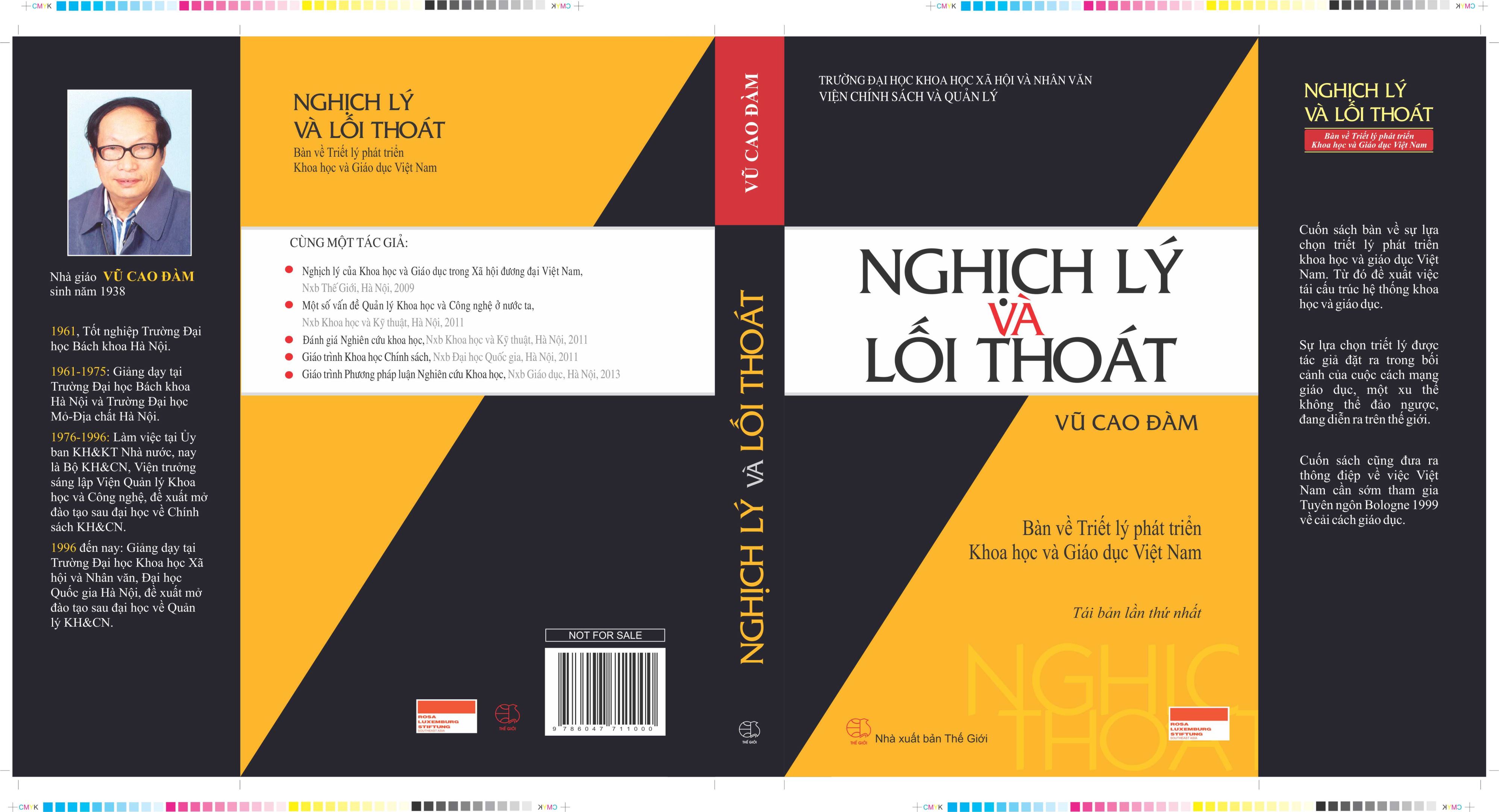
Some publications of IPAM. IPAM has built a system of documents, textbooks, and reference books that form the foundation for the development of research directions in policy science and management at the University of Social Sciences and Humanities.
- On the occasion of the 15th anniversary of cooperation between the University of Social Sciences and Humanities, specifically IPAM, and the Rosa Luxemburg Foundation, could you share your thoughts?
I would like to share my joy and gratitude to our long-standing partner, the Rosa Luxemburg Foundation, and the scientists of the Federal Republic of Germany for their enthusiastic, sincere, and effective support to IPAM and the University of Social Sciences and Humanities over the past 15 years. It is the persistent scientific spirit and the dedication to creating valuable changes in policy practices in Vietnam from scientists on both sides that have brought about tremendous achievements, of which the presence of IPAM is the clearest evidence.
I also sincerely appreciate the contributions of senior scientists such as Associate Professor Dr. Vu Cao Dam - a scientist who was instrumental in establishing the initial activities of the collaborative project and training outstanding successors capable of continuing and developing the achievements of the previous generation to a new level. The success of IPAM is also due to the team of young, capable, and passionate scientific staff who are always dynamic and dedicated to the common goals of the Institute. Furthermore, the guidance and support of the University leadership and the cooperation and assistance of external partners, especially units under the Ministry of Science and Technology, have helped us to increasingly develop our research and training activities, contributing effectively to the socio-economic development of the country.
Thank you, Professor.
Author:Thanh Ha
Newer news
Older news